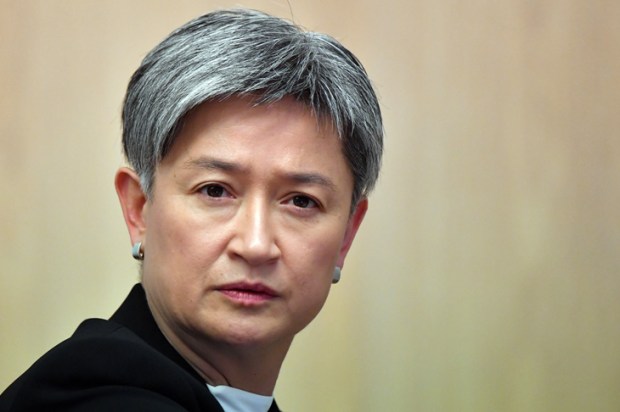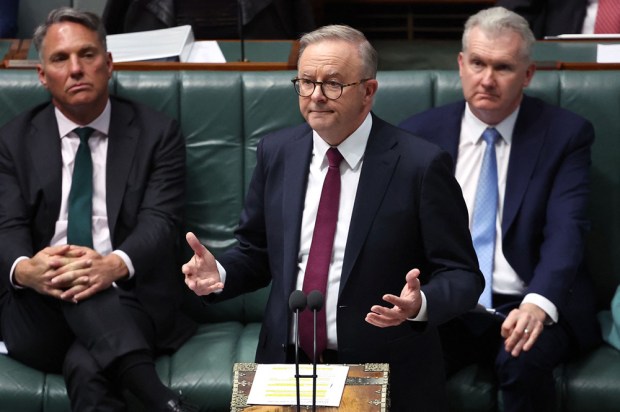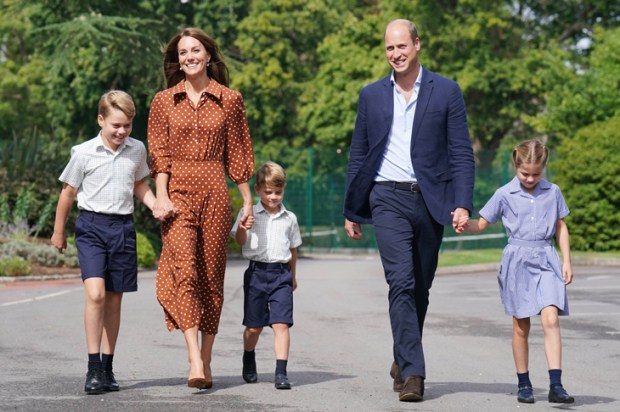Is keeping Christopher Pyne in Parliament and Malcolm Turnbull in The Lodge really worth over-spending $50 billion on a fleet of Barracuda submarines, minus their nuclear powered engines? The fleet won’t be ready even for the 2045 VJ Centenary Naval Review by our 63 year old then King, William V. No wonder the French are chortling over ‘le contrat du siècle’. Both major parties have now unashamedly raided the defence budget to advance their narrow electoral interests, while knowingly running down the defence of Australia. These scandals reflect the decline of these once great parties, now the playthings of small cabals of powerbroker/lobbyists whose aim is to ensure that politicians are chosen not on merit but for their factional loyalty. Rather than being left for years with those worn out Collins class disasters, why aren’t we buying or leasing a fleet at a sensible price from a proven, reliable and long standing ally, such as the Virginia or Astute nuclear-powered subs? It is said that the submarine contract is essential because South Australia – which should be an enhanced food bowl with nuclear power and specialised manufacturing industries based on low cost power − is in a financial mess. For that blame incompetent politicians, thuggish union bosses, crony capitalists and the modern global warming and political correctness religions. In the meantime, our farmers have become a target of hatred and contempt. Unlike the miners, their access to adequate water is constantly denied or impeded, as are their moral rights to decide what they should grow on, and who should get to dig under, their land – and how best to protect it against potential bushfires. Instead they are spied on and harassed as if they were lawbreakers. Fortunately in South Australia Peter Manuel and Flag Australia, constantly provide the media with report after report about the persecution and mistreatment of the farmers. In addition we have a peculiar breed of trade union bosses who prefer to destroy an industry and their members’ jobs if their control is threatened. With warmism, that’s why we don’t have a car industry, why manufacturing is going to the wall and why we almost lost our national airline. Fortunately Alan Joyce was strong enough to ignore union orders and Qantas wise enough to resist the call by Senator Xenephon and others for his head.
Higher education, constitutionally a state matter, is effectively a federal government command economy. When Gough Whitlam’s ‘free’ university system threatened to implode, the Hawke government’s solution was to require students to borrow a portion of their fees. Unlike a car loan, they only begin repayments when their income reaches a threshold, now $54,126. But then the Rudd government removed the cap on student numbers, and Liberal Minister Pyne proposed universities be free to charge whatever they want. It was as if Rudd and Pyne had studied the US administration’s subprime lending policies, which precipitated a housing bubble followed by the Global Financial Crisis, and decided this would make an excellent model. As a result, the net government debt attributable to this folly is projected to rise to almost $50 billion over the decade. With doubtful debts and interest, the annual cost to taxpayers will rise to $12.8 billion. As for schools, the more federal money is poured into them, the lower the standards of literacy and numeracy. Reports about the siphoning of money from Muslim schools and the insertion of grossly inappropriate material into the national curriculum show how right our founding fathers were − education is best kept away from federal politicians. Canberra should restrict itself to funding vouchers for children to be cashed out in a state school or used towards the fees in a denominational school and Commonwealth scholarships and loans for qualified university students.
Why is the NSW government so unreasonable in forcing municipalities and shires to amalgamate into regional governments? No amalgamation should take place without a vote of the people concerned. Experience in other states demonstrates that amalgamations are usually costly failures. A particular fear is that it will be easier for powerbroker lobbyists to control the preselections of political candidates in regional governments − and consequently their decisions on client development proposals. This recalls the curious decision this year to force petrol stations not only to sell ethanol but to fine them if they do not achieve their quotas, with a sinister power in the government to ‘forgive’ any unfortunate who does not meet the quota. So some politician is to be prosecutor, judge and jury − not what we should expect in one of the world’s oldest democracies.
Ted Cruz received more votes in small Wisconsin than Donald Trump did in New York but the American mainstream media concludes Trump will be the Republican nominee. But if Trump doesn’t enjoy the support of 1237 delegates before 18 July, there’s still a good chance the convention may choose the principled constitutionalist Cruz, who would be a stronger candidate against Hilary Clinton. That will be the ideal result for America and the world. Trump has long been a ‘liberal’ Democrat, with little understanding of foreign policy or of the constitution. The suspicion among conservatives is that the mainstream media are waiting until he becomes the nominee before exposing him, thus aiding Clinton’s cause.
Obama really put his foot in it when he threatened that if Britain left the EU, she would be at the end of the queue in securing a trade deal with the US. If small countries like Switzerland and Norway thrive outside the EU, why shouldn’t the country that stood up to Hitler prosper in the wider world? Obama’s comment recalled Gareth Evans’s argument that there was no advantage for us in Brexit. After all, he said, since the fall of Singapore, Britain had brought nothing of significance to the region’s defence. Putting aside the Five Powers and the crucial Five Eyes agreements, the former foreign minister had overlooked a lot: the Burma and Indian campaigns, the naval operations from Ceylon, the Supreme Allied Command under Mountbatten, the British Pacific Fleet, the Malayan Emergency, the Konfrontasi war and as part of the INTERFET force in East Timor.
Got something to add? Join the discussion and comment below.
Get 10 issues for just $10
Subscribe to The Spectator Australia today for the next 10 magazine issues, plus full online access, for just $10.
You might disagree with half of it, but you’ll enjoy reading all of it. Try your first month for free, then just $2 a week for the remainder of your first year.













Comments
Don't miss out
Join the conversation with other Spectator Australia readers. Subscribe to leave a comment.
SUBSCRIBEAlready a subscriber? Log in